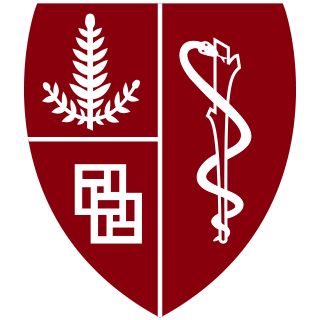Consultant and Professor of Medicine
Hematology
Dr. Peter L. Bergsagel, MD
Peter Bergsagel works in the field of Hematology. He has 24 awards "America's Top Doctors", "Top Doctors:Arizona State", "America's Top Doctors for Cancer", "Robert A. Kyle Mayo Clinic Distinguished Investigator", "Elected Member", "Senior Investigator Award", "Award", "Translation Research Award", "The Howard Temin Extended Support Award", "The Henry Christian Award for Excellence in Research", "The New York Community Trust Award", "Early Career Development Award", "Henry Christian Award for Excellence in Research", "Chiron Therapeutics Research Award", "The Lois and KJR Wightman Award", "Donship", "The Dickinson-Cartwright 3T0 Scholarship", "The Alfred T. De Lury Scholarship in Mathematics", "The Harry Boxen Memorial Scholarship in Mathematics", "The Archibald Hope Young Scholarship", "The Samuel Beatty Incourse Scholarship for Mathematics", "The Honourable R. Lawson Scholarship", "The Governor General's Medal for the highest standing" and "The John Herbert McConnell Scholarship in General Proficiency". Peter L. Bergsagel, MD is also published. He has 101 publications published. The lastest publication: "Panel sequencing for clinically oriented variant screening and copy number detection in 142 untreated multiple myeloma patients.' He accepts all Medicare patients.
Publications
- UCHL1 is a biomarker of aggressive multiple myeloma required for Disease progression.
- Phase Ib/II trial of CYKLONE (cyclophosphamide, carfilzomib, thalidomide and dexamethasone) for newly diagnosed Myeloma.
- Long-term survival with cyclophosphamide, bortezomib and dexamethasone inDuction therapy in patients with newly diagnosed multiple myeloma.
- Identification of cereblon binding proteins and relationship with response and survival following pomalidomide and dexamethasone in multiple Myeloma.
- Repair of DNA double-strand breaks by templated nucleotide sequence insertions derived from distant regions of the genome.
- CD28-mediated pro-survival signaling induces chemotherapeutic resistance in multiple Myeloma.
- TPL2 kinase regulates the inflammatory milieu of the Myeloma niche.
- Growth Differentiating Factor 15 enhances the tumor initiating and self-renewal potential of multiple Myeloma cells.
- Smoldering multiple Myeloma requiring treatment: time for a new definition?
- The clinical significance of cereblon expression in multiple Myeloma.
- Genome-wide studies in multiple Myeloma identify XPO1/CRM1 as a critical target validated using the selective nuclear export inhibitor KPT-276.
- Degree of focal immunoglobulin heavy chain locus deletion as a measure of B-cell tumor purity.
- Management of newly diagnosed symptomatic multiple Myeloma: updated Mayo Stratification of Myeloma and Risk-Adapted Therapy (mSMART) consensus guidelines 2013.
- Molecular pathogenesis of multiple Myeloma: basic and clinical updates.
- An integrin-targeted, pan-isoform, phosphoinositide-3 kinase inhibitor, SF1126, has activity against multiple Myeloma in vivo.
- Improving overall survival and overcoming adverse prognosis in the treatment of cytogenetically high-risk multiple Myeloma.
- MYC addiction: a potential therapeutic target in MM.
- Whole genome sequencing of multiple myeloma from diagnosis to plasma cell Leukemia reveals genomic initiating events, evolution and clonal tides.
- Clonal competition with alternating dominance in multiple Myeloma.
- Once- versus twice-weekly bortezomib inDuction therapy with CyBorD in newly diagnosed multiple myeloma.
- High-resolution genomic Analysis in Waldenström's macroglobulinemia identifies disease-specific and common abnormalities with marginal zone lymphomas.
- Gene-expression profiling of Waldenstrom macroglobulinemia reveals a phenotype more similar to chronic lymphocytic Leukemia than multiple myeloma.
- A validated FISH trisomy index demonstrates the hyperdiploid and nonhyperdiploid dichotomy in MGUS.
- Differential regulation of IL-12 and IL-10 gene expression in macrophages by the basic leucine zipper transcription factor c-Maf fibrosarcoma.
- Evidence for cytogenetic and fluorescence in situ hybridization risk stratification of newly diagnosed multiple Myeloma in the era of novel therapie.
- Diagnosis and management of Waldenström Macroglobulinemia: Mayo stratification of Macroglobulinemia and risk-adapted therapy (mSMART) guidelines.
- TRAF3 in B cells: too much, too little, too bad.
- Pomalidomide (CC4047) plus low-dose dexamethasone as therapy for relapsed multiple Myeloma.
- Rearrangements and amplification of IER3 (IEX-1) represent a novel and recurrent molecular abnormality in Myelodysplastic syndromes.
- Management of newly diagnosed symptomatic multiple Myeloma: updated Mayo Stratification of Myeloma and Risk-Adapted Therapy (mSMART) consensus guidelines.
- Kinome-wide RNAi studies in human multiple myeloma identify vulnerable kinase targets, including a lymphoid-restricted kinase, GRK6.
- Lenalidomide plus dexamethasone versus thalidomide plus dexamethasone in newly diagnosed multiple myeloma: a comparative Analysis of 411 patients.
- Classical and/or alternative NF-kappaB pathway activation in multiple Myeloma.
- InDuction of ectopic Myc target gene JAG2 augments hypoxic growth and tumorigenesis in a human B-cell model.
- Identification of kinetin riboside as a repressor of CCND1 and CCND2 with preclinical antiMyeloma activity.
- Characterization of MYC translocations in multiple Myeloma cell lines.
- WSU-WM and BCWM.1 should not be assumed to represent Waldenström Macroglobulinemia cell lines.
- Need akt? Some Myelomas do.
- Gene expression profiling of pulmonary mucosa-associated lymphoid tissue Lymphoma identifies new biologic insights with potential diagnostic and therapeutic applications.
- Nonredundant and complementary functions of TRAF2 and TRAF3 in a ubiquitination cascade that activates NIK-dependent alternative NF-kappaB signaling.
- AID-dependent activation of a MYC transgene induces multiple Myeloma in a conditional mouse model of post-germinal center malignancies.
- Syk to death.
- Impact of risk stratification on outcome among patients with multiple Myeloma receiving initial therapy with lenalidomide and dexamethasone.
- Identification of copy number abnormalities and inactivating mutations in two negative regulators of nuclear factor-kappaB signaling pathways in Waldenstrom's macroglo...
- Impressions of the Myeloma landscape.
- Epigenetics and microRNAs combine to modulate the MDM2/p53 axis in Myeloma.
- Single-agent lenalidomide in the treatment of previously untreated chronic lymphocytic Leukemia.
- Consensus recommendations for risk stratification in multiple Myeloma: report of the International Myeloma Workshop Consensus Panel 2.
- MMSET regulates histone H4K20 methylation and 53BP1 accumulation at DNA damage sites.
- Initial genome sequencing and Analysis of multiple myeloma.
- International Myeloma Working Group (IMWG) consensus approach to the treatment of multiple Myeloma patients who are candidates for autologous stem-cell transplantation.
- Phase I/II study of melphalan, prednisone and lenalidomide combination for patients with newly diagnosed multiple Myeloma who are not candidates for stem cell transpla...
- Lenalidomide, cyclophosphamide and dexamethasone (CRd) for newly diagnosed multiple Myeloma: Results from a phase 2 trial.
- Pomalidomide plus low-dose dexamethasone in myeloma refractory to both bortezomib and lenalidomide: comparison of two dosing strategies in dual-refractory Disease.
- CD28 expressed on malignant plasma cells induces a prosurvival and immunosuppressive microenvironment.
- Comprehensive identification of somatic mutations in chronic lymphocytic Leukemia.
- Approach to the treatment of multiple Myeloma: a clash of philosophies.
- N-cadherin-mediated interaction with multiple Myeloma cells inhibits osteoblast differentiation.
- Cereblon expression is required for the anti-Myeloma activity of lenalidomide and pomalidomide.
- BET bromodomain inhibition as a therapeutic strategy to target c-Myc.
- Role of Pirh2 in mediating the regulation of p53 and c-Myc.
- Many multiple Myelomas: making more of the molecular mayhem.
- Molecular mechanisms of bortezomib resistant adenocarcinoma cells.
- MIP-1alpha (CCL3) is a downstream target of FGFR3 and RAS-MAPK signaling in multiple Myeloma.
- Molecular pathogenesis and a consequent classification of multiple Myeloma.
- Early genetic events provide the basis for a clinical classification of multiple Myeloma.
- Multiple Myeloma: evolving genetic events and host interactions.
- The enigma of ectopic expression of FGFR3 in multiple Myeloma: a critical initiating event or just a target for mutational activation during tumor progression.
- Chemotherapy of multiple Myeloma: melphalan--40 years old and still going strong.
- Prognostic factors in multiple Myeloma: it's in the genes.
- Critical roles for immunoglobulin translocations and cyclin D dysregulation in multiple Myeloma.
- Advances in biology and therapy of multiple Myeloma.
- Inhibition of fibroblast growth factor receptor 3 induces differentiation and apoptosis in t(4;14) Myeloma.
- Genetics and cytogenetics of multiple Myeloma: a workshop report.
- Overexpression of c-maf is a frequent oncogenic event in multiple Myeloma that promotes proliferation and pathological interactions with bone marrow stroma.
- Advances in biology of multiple Myeloma: clinical applications.
- Bone lesions in molecular subtypes of multiple Myeloma.
- Overexpression of transcripts originating from the MMSET locus characterizes all t(4;14)(p16;q32)-positive multiple Myeloma patients.
- Cyclin D dysregulation: an early and unifying pathogenic event in multiple Myeloma.
- Panel sequencing for clinically oriented variant screening and copy number detection in 142 untreated multiple Myeloma patients.
- Osteopontin dysregulation and lytic bone lesions in multiple Myeloma.
- Gene expression profiling and correlation with outcome in clinical trials of the proteasome inhibitor bortezomib.
- Treatment of newly diagnosed multiple Myeloma based on Mayo Stratification of Myeloma and Risk-adapted Therapy (mSMART): consensus statement.
- Molecular dissection of hyperdiploid multiple Myeloma by gene expression profiling.
- Individualizing therapy using molecular markers in multiple Myeloma.
- Determinants of sensitivity to lovastatin-induced apoptosis in multiple Myeloma.
- Promiscuous mutations activate the noncanonical NF-kappaB pathway in multiple Myeloma.
- FGFR3 activates RSK2 to mediate hematopoietic transformation through tyrosine phosphorylation of RSK2 and activation of the MEK/ERK pathway.
- Long-term results of response to therapy, time to progression, and survival with lenalidomide plus dexamethasone in newly diagnosed Myeloma.
- The MMSET protein is a histone methyltransferase with characteristics of a transcriptional corepressor.
- Genetic aberrations and survival in plasma cell Leukemia.
- Compromised stem cell mobilization following inDuction therapy with lenalidomide in myeloma.
- Genetic events in the pathogenesis of multiple Myeloma.
- Translocation t(4;14) retains prognostic significance even in the setting of high-risk molecular signature.
- Diagnostic evaluation of t(4;14) in multiple Myeloma and evidence for clonal evolution.
- A practical guide to defining high-risk Myeloma for clinical trials, patient counseling and choice of therapy.
- Expression and mutation status of candidate kinases in multiple Myeloma.
- Maintained rules of development in a mouse B-cell tumor.
- Ploidy status rarely changes in myeloma patients at Disease progression.
- Prognostic factors for hyperdiploid-Myeloma: effects of chromosome 13 deletions and IgH translocations.
Schools
University of Toronto Faculty of Medicine
Stanford University Med Center
University Toronto
National Canc Institute
Procedures Preformed
- HPC Transplantation (Stem Cell Transplant)
- Thoracentesis
Conditions Treated
- Acute Leukemia
- Anal and Rectal Cancer
- Anemia
- Bile Duct Cancer
- View All
Doctors Specialties
- Medical Oncology
- Oncology
- Hematology
Accepted Insurances
Awards
- America's Top Doctors
- Top Doctors:Arizona State
- America's Top Doctors for Cancer
- Robert A. Kyle Mayo Clinic Distinguished Investigator
- Elected Member
- Senior Investigator Award
- Award
- Translation Research Award
- The Howard Temin Extended Support Award
- The Henry Christian Award for Excellence in Research
- The New York Community Trust Award
- Early Career Development Award
- Henry Christian Award for Excellence in Research
- Chiron Therapeutics Research Award
- The Lois and KJR Wightman Award
- Donship
- The Dickinson-Cartwright 3T0 Scholarship
- The Alfred T. De Lury Scholarship in Mathematics
- The Harry Boxen Memorial Scholarship in Mathematics
- The Archibald Hope Young Scholarship
- The Samuel Beatty Incourse Scholarship for Mathematics
- The Honourable R. Lawson Scholarship
- The Governor General's Medal for the highest standing
- The John Herbert McConnell Scholarship in General Proficiency
Education
-
 Stanford University
Stanford University
-
 University of Toronto Faculty of Medicine
University of Toronto Faculty of Medicine
Hospital
-
 Mayo Clinic - Phoenix/Scottsdale, Arizona
Mayo Clinic - Phoenix/Scottsdale, Arizona
Drug Facts
| NPI NUMBER |
|
1316920150 |
| NPPES Provider LastName |
|
BERGSAGEL |
| NPPES Provider FirstName |
|
PETER |
| NPPES Provider ZIPCode |
|
852595404 |
| NPPES Provider State |
|
AZ |
| Specialty Description |
|
Hematology |
| Total Claim Count |
|
101.0 |
| Distinct Opioid Count |
|
0.0 |
| Opioid Claim Count |
|
0.0 |
| Percent Opioid Claims |
|
0.0 |
Helpful Reviews
Give
Anonymous Review
Medicare Facts
| National Provider Identifier [NPI] |
1316920150 |
| Last Name Of The Provider |
BERGSAGEL |
| First Name Of The Provider |
PETER |
| View All |
|
Similar Doctors
Doctor Directory | TOS | twitter | FB | Angel | blog
 Stanford University
Stanford University University of Toronto Faculty of Medicine
University of Toronto Faculty of Medicine Mayo Clinic - Phoenix/Scottsdale, Arizona
Mayo Clinic - Phoenix/Scottsdale, Arizona
 This Doctor is OpenDoctor Recommended.
This Doctor is OpenDoctor Recommended.




 This Doctor is OpenDoctor Recommended.
This Doctor is OpenDoctor Recommended.

 This Doctor is OpenDoctor Recommended.
This Doctor is OpenDoctor Recommended.

 This Doctor is OpenDoctor Recommended.
This Doctor is OpenDoctor Recommended.
